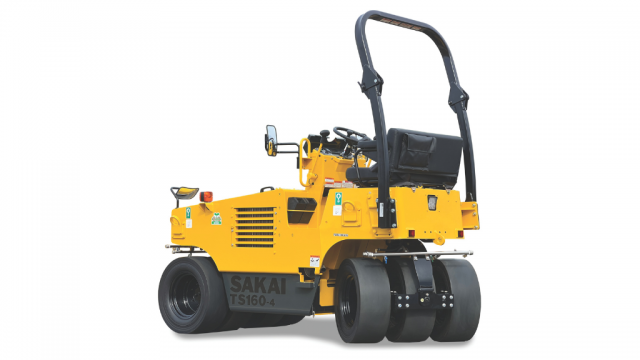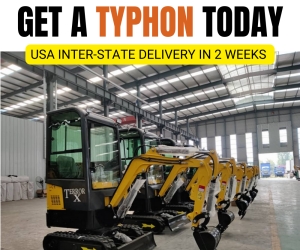Tadano To Present Demo All Terrain Hybrid Crane at bauma 2022
Tadano is scheduled to present a demo all terrain crane with an electrified superstructure to a broad public for the first time ever at this year’s bauma. “With this innovative tech demo, we’ll show how Tadano is already laying the foundation so as to be able to use all options for carbon-neutral crane operation in […] Tadano To Present Demo All Terrain Hybrid Crane at bauma 2022 published on The HeavyQuip Magazine.

Tadano is scheduled to present a demo all terrain crane with an electrified superstructure to a broad public for the first time ever at this year’s bauma.
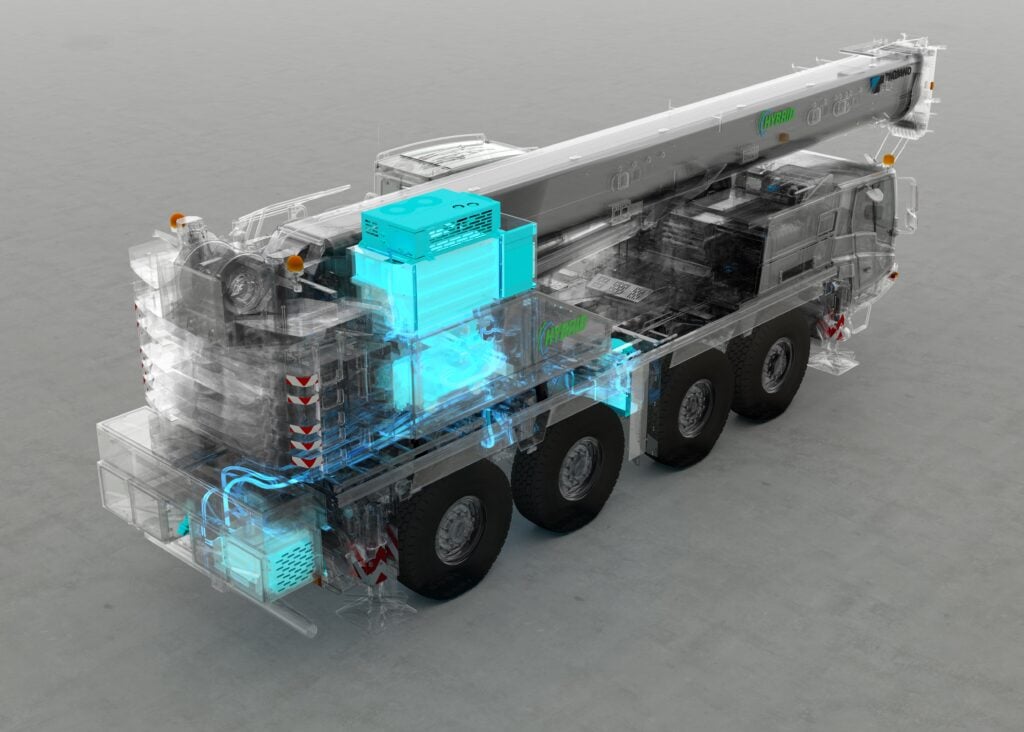
“With this innovative tech demo, we’ll show how Tadano is already laying the foundation so as to be able to use all options for carbon-neutral crane operation in the future.”
highlights Project Manager Alexandra Löhner.
In fact, the hybrid approach is part of a whole series of forward-looking solutions like the E-Pack and the ability to run Tadano cranes on alternative diesel fuels, all of which is part of Tadano’s efforts to be a trailblazer in the field of environmentally friendly and climate-friendly alternative drives. This is being done against the backdrop of the company’s commitment to sustainability and protecting the environment: More specifically, the Tadano Group has the explicit goal of reducing the CO2 emissions from its business activities by 25 percent worldwide and those from its products by 35 percent by 2030. Tadano wants to take advantage of bauma to discuss this approach with its customers while using this hybrid tech demo as a concrete example so as to get feedback for further developments.
This is why suitability for real-life use was a priority from the get-go when developing the hybrid tech demo and why the crane is designed to remain fully self-sufficient and ready for operation at all times regardless of operating conditions. This was achieved with a particularly flexible power supply concept in which the superstructure’s electric operation can be powered through the integrated battery, through a connection to external power, or with the help of a generator on the diesel engine that provides power for the electric motor on the superstructure. The result? The superstructure always runs on exclusively electric power while the system ensures maximum reliability. Also worth mentioning: The electrified superstructure design makes it possible to use either 32 A or 63 A connectors when using external power.
It is worth mentioning that any concerns regarding the crane’s performance would be wholly unfounded: The electric motor’s working speed and delivered lifting capacity are exactly at the same level as those of a diesel engine – and that is regardless of which of the three possible sources of power is used, since the battery serves as a buffer. Moreover, the hybrid demo crane shines in other areas as well: For instance, its electric crane operation comes with significantly lower noise emissions under all lifting conditions.
Extremely promising benefit–cost ratio
The demo crane also brings good news in regard to operating costs, with the primary reason for this being the electric motor’s high efficiency – around 95% under ideal conditions.
“When we take into account all the components in the electric drive system – that is, all the way from the outlet to the electric motor – our demo crane consistently achieves a system efficiency of around 85 percent. That’s more than twice as much as an efficient diesel engine, which comes in at a much lower 40 percent.”
explains Hydraulics & Electrics Manager Carsten Henglein.
“Our calculations used the energy mix in Germany in 2020 as a basis, meaning that the percentage of renewable power fed in would be 47 percent. But even with a less environmentally friendly mix, these calculations show that electric superstructure operation would still be able to reduce the corresponding carbon footprint by up to 50 percent in comparison to diesel-driven superstructures.”
he underscores.
The Tadano hybrid concept also comes with advantages in regard to servicing costs: The battery and electric motor require much less maintenance than diesel engines with their complex exhaust systems, which also means that the scope of maintenance and servicing training required for electrified superstructures is relatively small. Needless to say, however, this does not apply to operating the crane – it is no different from conventional drives in this regard, meaning that no special training is required for this purpose either.
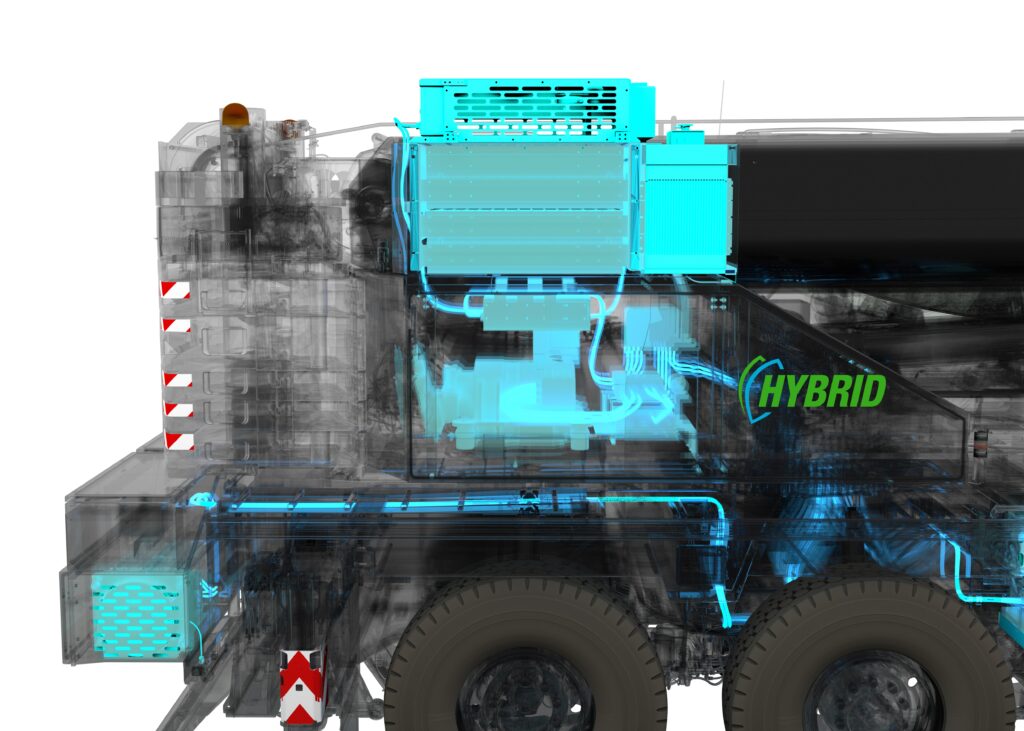
Heavy-duty, durable battery
Even though the tech demo is not up for sale, it is still possible to estimate ballpark acquisition costs already. As expected, they would still be higher than those for a comparable conventional crane, but the difference would be more than compensated for over the crane’s lifecycle due to the lower operating costs. In fact, the battery used would also contribute to a positive net result, as its design ensures that it will still have around 80% of its original rated capacity after 3,000 full charging cycles. Moreover, partial cycles can be added and, according to the manufacturer, would have a positive impact on service life.
It is also important to mention that ruggedness was an important factor when selecting components: Neither extremely dusty environments nor low temperatures pose a problem for electric crane operation.
“To guarantee reliable operation even at very low temperatures, we equipped the crane with a thermal management system that continuously keeps the battery in an ideal temperature range and pre-heats it before starting, if necessary.”
Henglein explains.
Highly anticipated: Customer feedback
The team at Tadano is extremely confident in its electrified superstructure concept as a result of the testing conducted to date.
“The hybrid demo crane met all our expectations. In addition to helping us build development know-how, it provided us with many more valuable insights on how to work with this next-gen technology in a multitude of areas: safety during installation and testing, procurement and production logistics, properly handling the battery and the associated requirements for dangerous goods – you name it. In short, we’ve made some huge strides.”
Löhner happily summarizes.
Among other things, Tadano now expects its hybrid solution presentation at bauma to yield invaluable feedback from customers. In fact, the company has clarified that it wants to take advantage of the trade show to talk to customers about their thoughts on the technology and their concrete expectations for it.
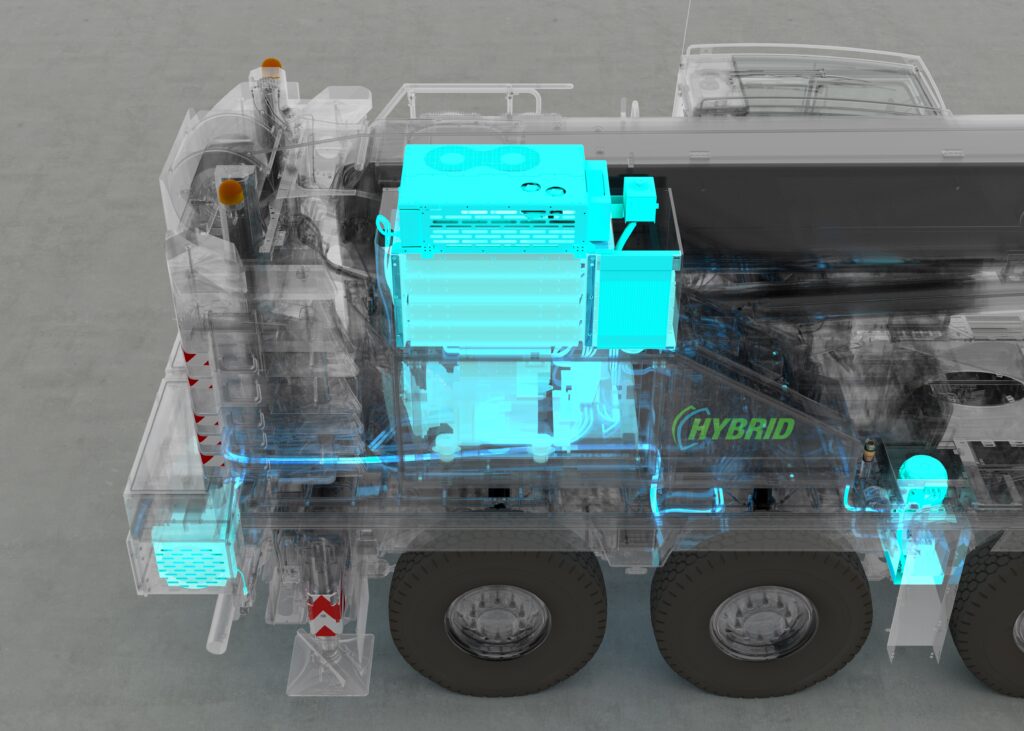
“This is obviously important, since we’re not pushing innovations just for innovation’s sake, but rather with our customers’ best interests in mind at all times. And that means that their feedback is the foundation for our decisions.”
AT Product Line Vice President Frank Schröder mentions before underscoring the fact that Tadano will always offer markets the technologies that are viable in their specific situations. It should come as no surprise then that Tadano cranes with combustion engines will also remain available as long as necessary.
Having said that, the hybrid approach is so promising that the team at Tadano can definitely see the development of a market-ready crane on the basis of the tech demo, with more to follow afterwards. A full range of models with electrified superstructures would not be out of the question, for example.
At bauma, customers will get the opportunity to take a closer look at the hybrid tech demo and talk about it with the Tadano team for the first time ever: The plan is to have regular demonstrations with the hybrid crane.
Tadano To Present Demo All Terrain Hybrid Crane at bauma 2022 published on The HeavyQuip Magazine.

 machineryasia
machineryasia 
